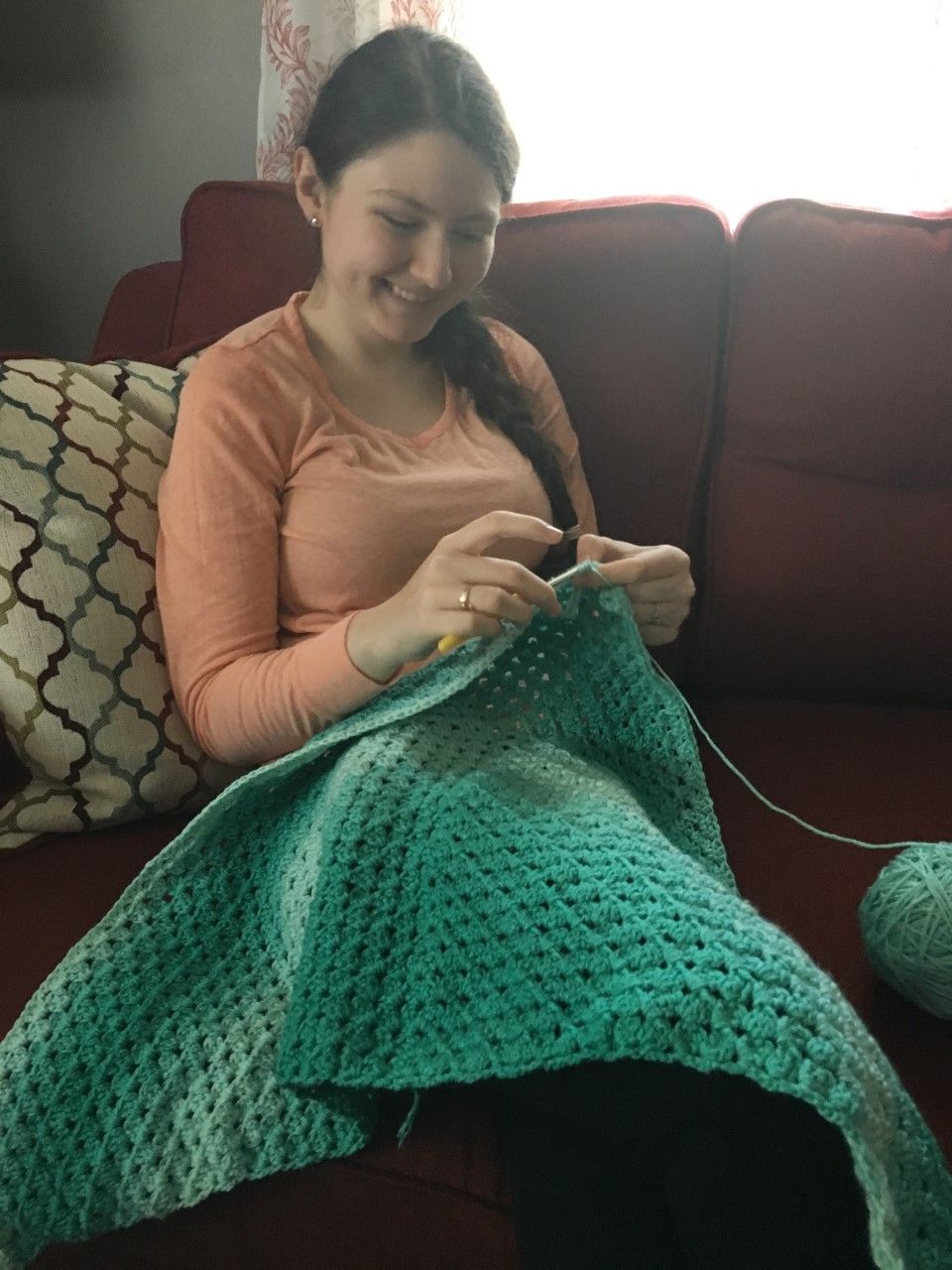When you’re diagnosed with a chronic condition as a child or young adult, you may instinctively look for ways to ease the stress of living with a painful disease, or try to hide your suffering altogether. At least that was the case for Elizabeth Medeiros, who was diagnosed with juvenile arthritis at age 3 and juvenile psoriatic arthritis (PsA) as a teenager. These conditions caused joint pain, stiffness and fatigue, psoriasis on her nails, and jaw pain.
For Medeiros, the most stressful part of living with PsA is coping with an invisible illness on a daily basis. “Like many people with PsA, I feel pressure to pretend like everything is okay all the time,” she explains. “But living life in survival mode takes a huge mental toll on you that others don’t realize. Some people may not know about your PsA and others may not realize how bad your pain is.”
Over the years, she struggled with depression and found it hard to cope, citing factors like feeling isolated from her peers, frustration with how her insurance plan dictated her treatment options, dealing with “intense” side effects like migraines, nausea and loss of appetite, and overall uneasiness with what the future might bring.
“I soon realized I couldn’t dwell too much on my diagnosis or I would stay in that dark place,” says Medeiros, now 25 and working as a product designer in Boston. “Yes, it’s a big deal and it’s quite isolating. Yes, I need to talk about it and be honest about how I feel. But I also deserve to have a life outside of PsA.” Here, five stay-positive tips that have worked for her.
1. Find a support system
Tapping into a group of people who know what life with PsA is like has been a lifeline. As a kid, she attended the Arthritis Foundation’s camp for kids with juvenile arthritis. “I made friends who understood what I was going through, but who I could also have fun with,” she says. “It helped me become more positive.”
Now, she turns to online communities that are there for her “and totally get it,” including Facebook groups like the Worldwide Psoriatic Support Community, hashtags like #psoriaticarthritiswarrior on Instagram, and sites like Psoriatic-Arthritis.com.
2. Acknowledge your feelings
Medeiros realized early in her illness that talking about what you’re going through and complaining are not the same thing. She’s learned the importance of being honest about how she feels—both mentally and physically.
“It’s not possible nor healthy to be positive every second of every day,” she says. There will be moments when pain and fatigue make you feel discouraged, frustrated, stressed, or depressed.”
What’s important, she says, is telling yourself it’s okay to feel that way. “Trying to suppress those feelings will only make it worse; for me, it led to horrible burnout.” Talking to someone you trust—whether it’s a family member, friend, or therapist—is a great way to express those feelings.
3. Look for distractions
The best antidote to the pain of PsA? Medeiros says it’s focusing on the things that bring her joy, like drawing, crafting, playing guitar, blogging about her condition, and reading books. “Even when I’m not feeling great, they’re still things I can enjoy,” she says.
She finds drawing to be the most helpful and feels fortunate that pain doesn’t badly affect her hands. “Art can be very meditative,” she says. “I love using colored pencils or paint to draw pictures of cute animals and sometimes ‘paint’ portraits of loved ones on Photoshop.”
Another way she stays busy is crocheting shawls and baby blankets for friends and family. “Giving gifts of comfort to my loved ones inspires me to keep going—even on painful days.”
4. Find ways to make everyday tasks easier
Don’t feel like you need to push yourself or to allow stubbornness to keep you from asking for help. “Needing a little help is not a sign of weakness or unreliability,” Medeiros says.
She suggests that if mealtimes are a struggle, buy the pre-chopped veggies or pre-prepared meals; use wrinkle spray if ironing is too hard on your hands; install a spelling and grammar checker on your browser at work if you struggle with brain fog. “Do what you can to save yourself from extra stress,” says Medeiros.
5. Have things to look forward to
Make sure your daily to-do list includes at least one thing you feel excited about. “It doesn’t have to be a big thing—it can be an everyday thing, such as knowing you’re going to eat your favorite salad for lunch or getting to listen to a new episode of a podcast,” says Medeiros. “Having little things to look forward to during the day won’t take away all the pain, but it does give you a bit of hope and positivity to keep pushing on.”
Source: Read Full Article

